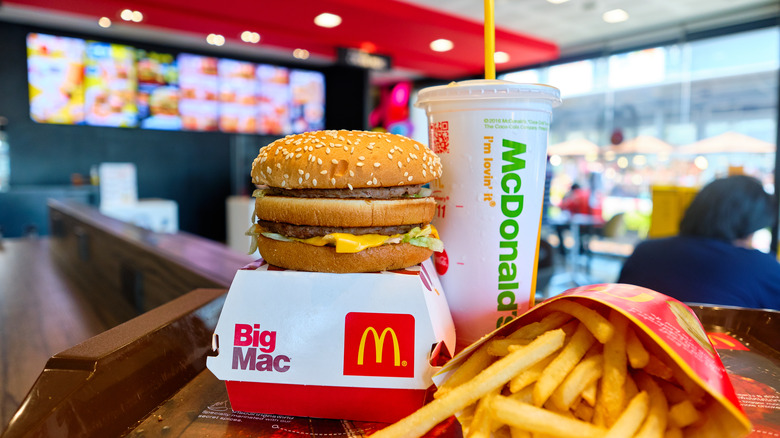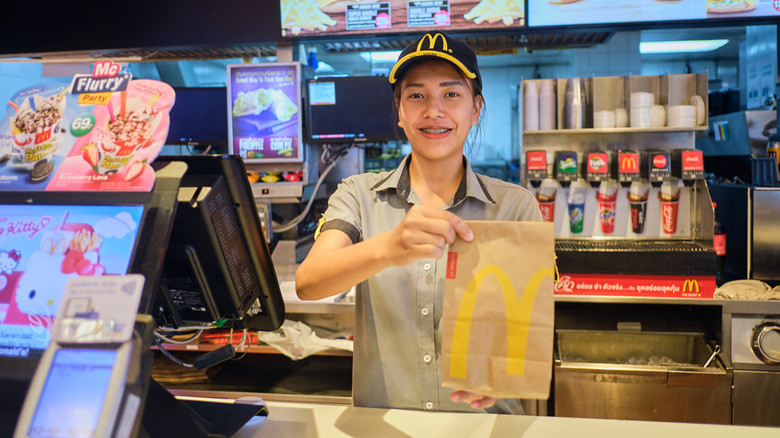Why McDonald's Doesn't Think Automation Will Fix Staffing Shortages
While people have suggested for years that automation would be the solution to labor shortages or high wages in certain industries, McDonald's CEO Chris Kempczinski assured consumers that they will not be buying their Big Macs from a robot any time soon.
According to QSR, Kempczinski said that while the company has done a lot of research into the possibilities of automation, the idea of robots "is not practical for the vast majority of restaurants." The CEO noted that the logistics associated with automating a store the way some people envision with robot burger-flippers and deep fryers are too complicated to be implemented in many stores because they are expensive, take up too much space, and would require major building renovations like enhanced cooling and HVAC systems.
The statement comes one year after McDonald's launched a pilot program at some Chicago-area locations to use automated voice recognition technology to take customers' orders at the drive-thrus (per CNBC). That program led to a partnership being formed with IBM in October 2021, which CNBC reported was aimed at improving the drive-thru AI (artificial intelligence) technology before it could be implemented more widely. While AI drive-thru ordering may be on the horizon for McDonald's, it seems it is a way off, as QSR notes that the accuracy in the previously conducted tests was coming in at about 80%, too far below the ideal 95% target mark McDonald's set for wider implementation.
Focusing on people
If wide-scale automation is not in the cards for McDonald's, then the answer to the fast food giant's labor shortage seems to be focusing on human employees. CNBC reported in November 2021 that while 78% of restaurant operators said recruiting and retaining employees was their biggest challenge in July of that year, Kempczinski called the situation "challenging" but "not unsolvable," noting that stores had resorted to raising pay and increasing manager training. "We've got to kind of get after this the old-fashioned way, which is making sure we're a great employer and offering our crew a great experience when they come into the restaurants," Kempczinski told QSR.
QSR reported that McDonald's raised wages across the board at its 660 company-owned stores in 2021, bringing the average hourly pay up to $13 per hour, with a plan to increase average pay to $15 per hour by 2024. The federal minimum wage in the U.S. is $7.25 per hour. QSR also noted that McDonald's corporate-owned stores consistently outperform those owned by franchisees who may not have increased wages as much.
While Kempczinski acknowledged there have been other challenges, including inflation and reducing some store hours, overall the brand is performing well. According to QSR, the relatively low-priced menu has drawn back customers with U.S. store sales up 3.7% while international stores have seen 13% growth, a rebound which has helped absorb the damage done by the brand's decision to eliminate its estimated 800 Russian locations in light of Russia's invasion of Ukraine.

